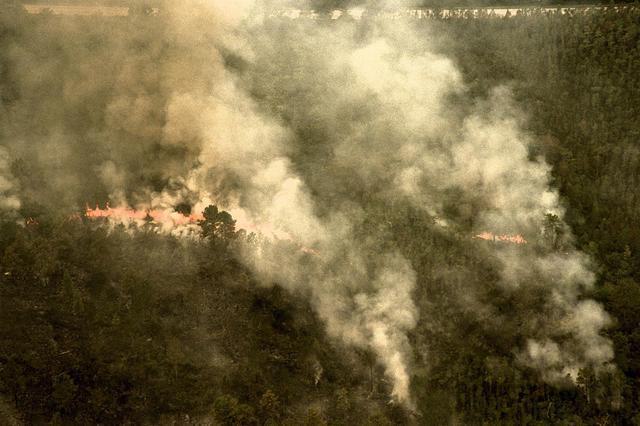UMD Resources for Media Covering Wildfires
Media Relations mediainfo@umd.edu

Are you a journalist covering: the growing length of wildfire seasons in the U.S. and globally; the increasing frequency, size and destructive impacts of such fires; inequities in these and other climate change enhanced disasters; and/or the rising challenges and dangers of fighting wildfires? University of Maryland faculty experts are exploring the changing wildfire landscape from these perspectives and many more.
(Contact mediainfo@umd.edu for more information or for help setting up an interview.)
- Monitoring Wildfires from Space:
- Chris Justice researches satellite-based fire monitoring and land cover and land use change.
- Tatiana Laboda studies wildland fire, biodiversity, climate change, public health and the interactions of these with other human and physical factors. Her work includes assessing impacts of wildfire on ecosystems and climate, and assessing the impacts of conservation policies on poor rural communities.
- Louis Giglio uses remote sensing to study both active wildfires and burned areas and to measure global fire emissions. Giglio is an internationally known developer of algorithms used all over the world for active fire detection and burned-area mapping.
Addressing Unequal Impacts:
Deb Niemeier is a National Academy of Engineering member, and a leading expert on societal and environmental impacts of transportation networks and urban infrastructure. Her research targets susceptibility of the built environment to natural disasters such as wildfires and floods, that give rise to structural inequality, particularly within the context of climate change. Niemeier and Clark School colleague Allison Reilly have urged the federal government to overhaul federal policies to incentivize resilience, redress systemic inequities and thus to end billion-dollar disasters. Related stories or information: Fired Up Over Inequities (Maryland Today); Researchers Urge Overhaul of Disaster Policy (Clark School News)
Amir Sapkota and Sacoby Wilson are examining the human health implications of the increasing incidence and impacts of wildfires and climate change exacerbated disasters, and of related inequities.
Marccus D. Hendricks studies social vulnerability to disasters, environmental justice, hazard mitigation, sustainable development, and public health and the built environment. He co-authored the HuffPost Op/Ed: To Avoid Wildfire Tragedies, Start Building Smarter
James Milke is Professor and Chair of UMD’s Department of Fire Protection Engineering and a Fellow and past President of the Society of Fire Protection Engineers. Milke’s principal expertise is in smoke management, fire detection and analyzing the response of materials exposed to fire conditions. He and a team of six UMD undergraduates recently delved into the factors that cause fire safety inequities around the world. Related stories or information: Fired Up Over Inequities (Maryland Today)
Boosting Resistance of Buildings to Wildfires:
Stanislav Stoliarov and Peter Sunderland lead research aimed at making buildings more resistant to wildfires, as well as to other causes of fire damage to buildings. Related story or information: Fire Protection Engineers Track a Different Kind of ‘Superspreader’ (Maryland Today).
Michael Gollner leads one a project to enable modeling of how wildfires cross the “wildland-urban interface” and move into, and sometimes devastate, communities;.and a second project focused on (1) determining how flying embers ignite different structural elements and (2) finding ways to protect homes against fire. Related story and/or information: Turning Up the Heat on Wildfires (Maryland Today)
Contact mediainfo@umd.edu for more information or for help setting up an interview.
Follow @UMDRightNow on Twitter for news, UMD experts and campus updates
